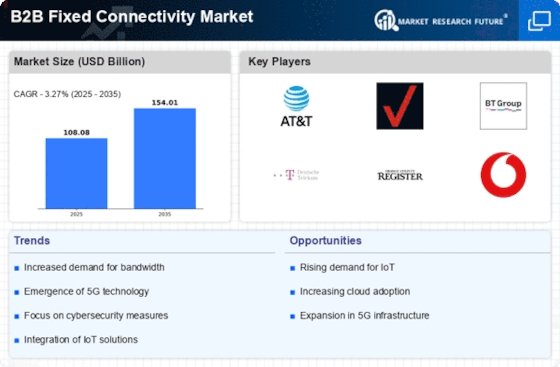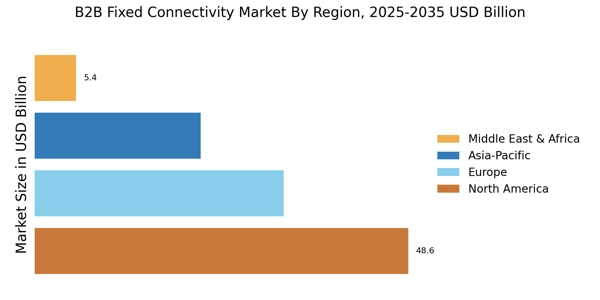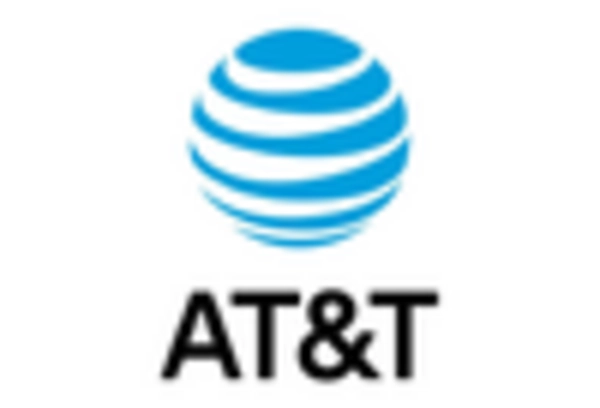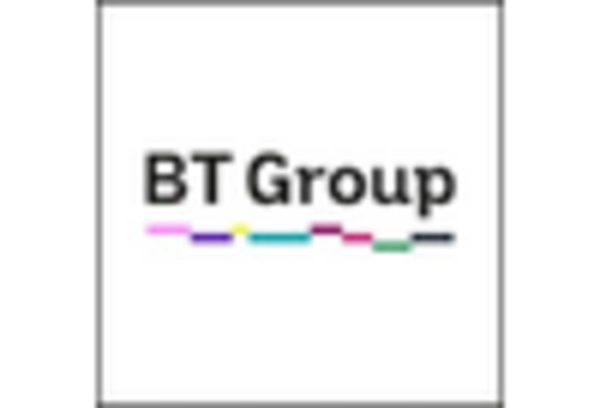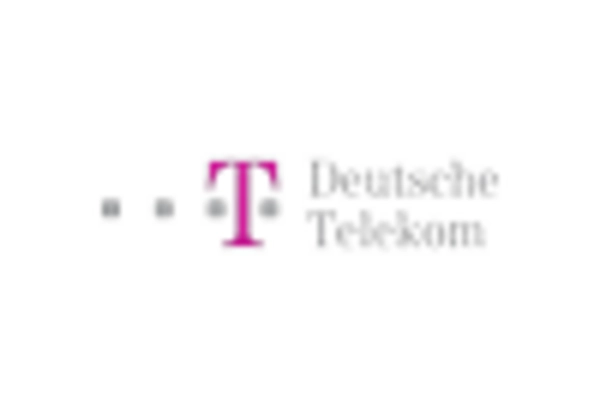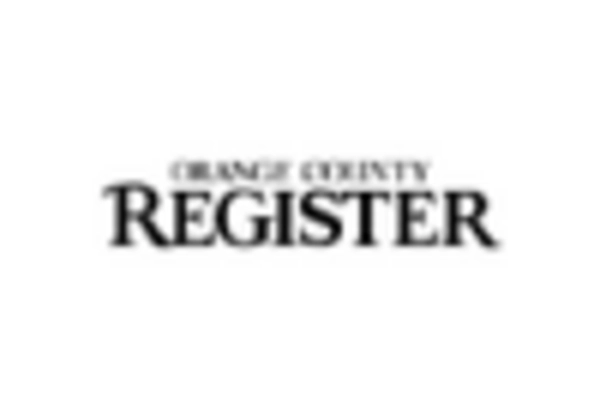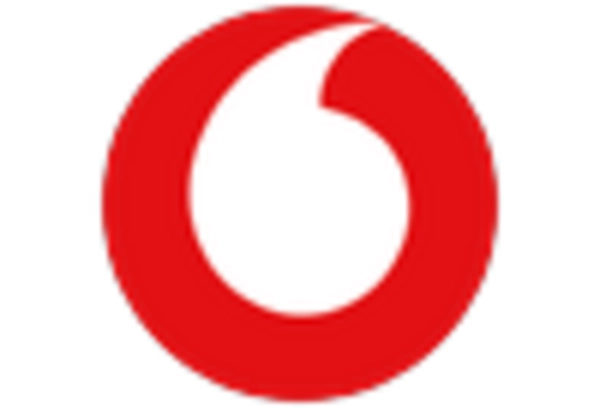Expansion of IoT Applications
The proliferation of Internet of Things (IoT) applications is significantly impacting the B2B Fixed Connectivity Market. As businesses increasingly adopt IoT technologies to enhance operational efficiency, the need for stable and high-capacity connectivity becomes paramount. Current estimates suggest that the number of connected devices could reach 30 billion by 2030, necessitating advanced fixed connectivity solutions to support this growth. Industries such as manufacturing, logistics, and healthcare are particularly poised to benefit from IoT integration, which requires reliable data transmission and real-time analytics. Consequently, service providers are likely to invest in infrastructure upgrades to accommodate the rising demand for IoT-enabled services, thereby driving growth within the B2B Fixed Connectivity Market.
Shift Towards Hybrid Work Models
The transition towards hybrid work models is reshaping the B2B Fixed Connectivity Market. As organizations adopt flexible work arrangements, the demand for reliable and high-speed connectivity solutions has intensified. Recent surveys indicate that over 60% of companies plan to maintain hybrid work policies, which necessitate robust connectivity for remote and on-site employees alike. This shift compels businesses to invest in fixed connectivity solutions that can support diverse work environments, ensuring seamless access to corporate resources. The emphasis on hybrid work is likely to drive innovation in connectivity services, as providers strive to meet the evolving needs of their clients. This trend not only influences purchasing behavior but also fosters a competitive environment within the B2B Fixed Connectivity Market.
Rising Demand for Reliable Connectivity
The B2B Fixed Connectivity Market is experiencing a notable surge in demand for reliable connectivity solutions. Businesses increasingly rely on uninterrupted internet access to support their operations, particularly as digital transformation initiatives gain momentum. According to recent data, approximately 70% of enterprises prioritize connectivity reliability as a key factor in their operational strategies. This trend is driven by the need for seamless communication, data transfer, and collaboration among teams. As organizations expand their digital footprints, the demand for robust fixed connectivity solutions is likely to grow, compelling service providers to enhance their offerings. The emphasis on reliability not only influences purchasing decisions but also shapes the competitive landscape within the B2B Fixed Connectivity Market, as companies seek to differentiate themselves through superior service quality.
Increased Focus on Data Privacy Regulations
The B2B Fixed Connectivity Market is increasingly influenced by the growing emphasis on data privacy regulations. As governments and regulatory bodies implement stricter data protection laws, businesses are compelled to adopt connectivity solutions that ensure compliance. This trend is particularly evident in sectors such as finance and healthcare, where data security is paramount. Companies are likely to seek fixed connectivity solutions that offer enhanced security features, such as encryption and secure access protocols, to mitigate risks associated with data breaches. The heightened focus on compliance not only drives demand for advanced connectivity solutions but also shapes the competitive landscape, as service providers differentiate themselves through robust security offerings within the B2B Fixed Connectivity Market.
Technological Advancements in Connectivity Solutions
Technological advancements are playing a crucial role in shaping the B2B Fixed Connectivity Market. Innovations such as 5G technology and fiber-optic networks are revolutionizing connectivity, offering unprecedented speeds and reliability. As businesses increasingly seek to leverage these advancements, the demand for next-generation fixed connectivity solutions is likely to rise. Current projections indicate that the global fiber-optic market could reach USD 10 billion by 2026, reflecting the growing interest in high-capacity connectivity options. Service providers are expected to invest heavily in upgrading their infrastructure to meet this demand, thereby enhancing their competitive positioning within the B2B Fixed Connectivity Market. The integration of advanced technologies not only improves service quality but also enables businesses to explore new opportunities for growth and innovation.


